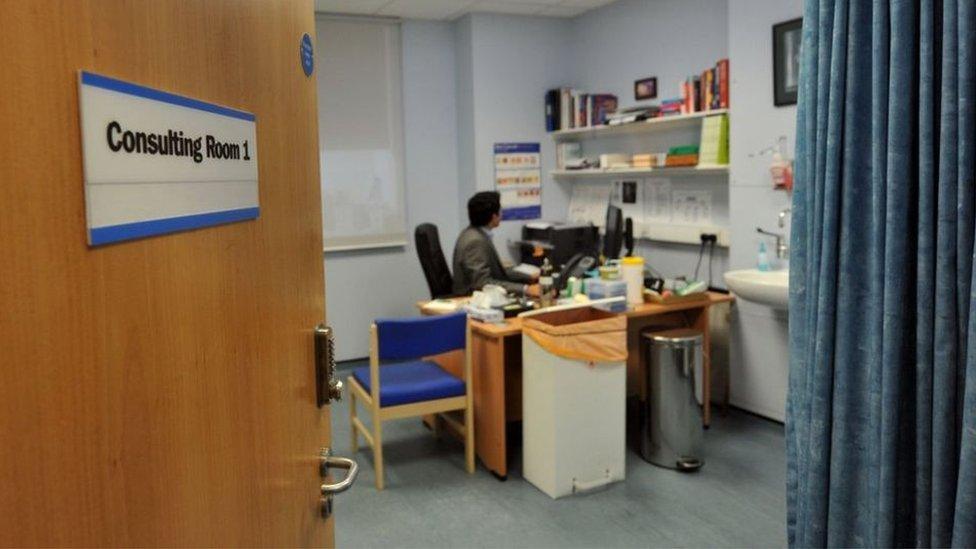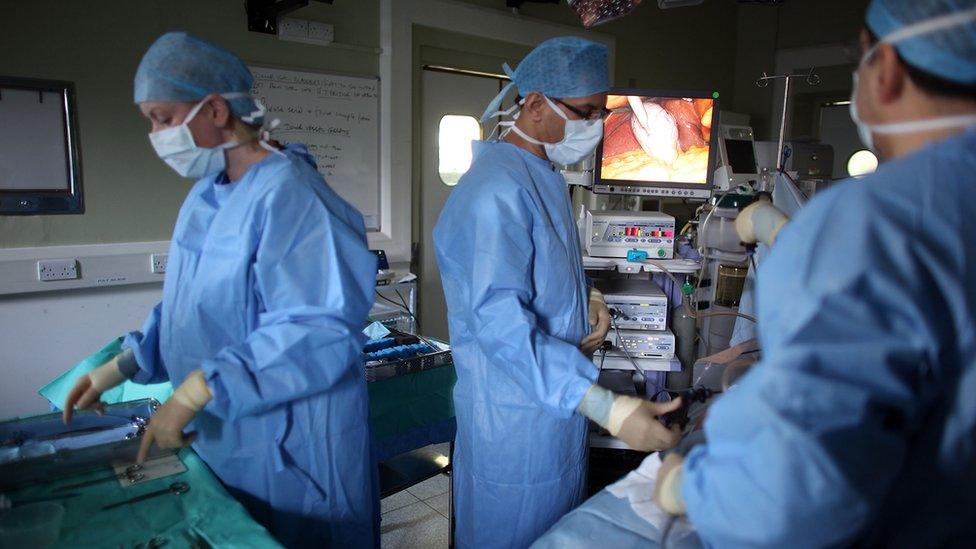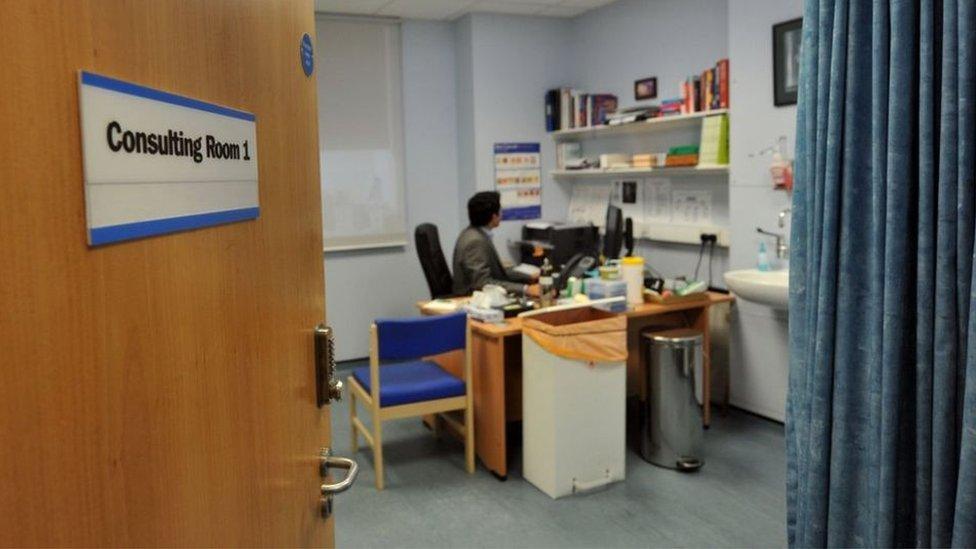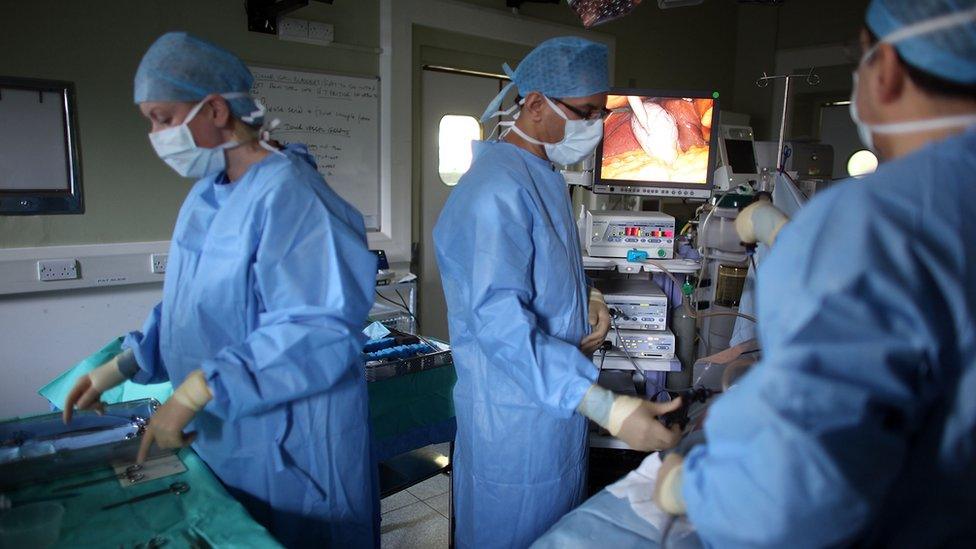Doctors urge 'courageous decisions' in NHS Scotland reform
- Published

Scotland's decision-makers must be prepared to be "courageous" and shut down "redundant" health facilities, medical leaders have told MSPs.
Holyrood's health committee has been gathering views about priorities for the 2018/19 budget.
A submission from the Royal College of Physicians of Edinburgh urged a population-based approach, including "removal" of "redundant facilities".
And unions warned of an "urgent" gap between available resources and demand.
MSPs have been gathering views from health professionals and groups about future budgets. The call for submissions closes on Wednesday.
They have heard widespread concerns about a growing gulf between demand on services and available funding, with Unison Scotland telling the committee that "the NHS in Scotland isn't getting the resources it needs".
'Urgent reality'
The submission, external from the British Medical Association Scotland warned that the "gap between NHS resources and growing demand is increasing at a greater and greater pace".
They said that this was "not an abstract problem for future years, but an urgent reality that is causing services across Scotland to deteriorate".

The Royal College of Physicians echoed this, saying that NHS Scotland had "much to do, external" over the effective and efficient use of resources.
Their submission said: "With limited national wealth, decision-makers and influencers must realise that the removal of redundant, although cherished facilities, practices and remedies is essential. There is ample evidence about the right, and most valuable, interventions to prioritise.
"This involves choice, and taking a population approach in proportion to need. The media's focus on exceptions and deficits, and the most vocal advocacy, must have a counter-weight in evidence-informed decision-making, taking judgement on comparative value."
'Courageous decisions'
The group hit out at "inappropriate" investment decisions, saying that evidence was sometimes not being used in a "robust" decision-making process.
They said: "There is a background of the media, public and political expectation that the care services will cope whatever the inputs - 'more doctors, more nurses, more ambulances and more helicopters'. This is persistently misleading, and leads to inappropriate investment decisions and failure to take courageous decisions to set and stick with priorities.
"We have low expectations that the current review of indicators and targets will help us to enter a new era of rational priority setting and decision making."

The BMA Scotland submission also issued a warning about priorities, saying: "When insufficient resources are available to the NHS, performance against targets inevitably becomes more difficult.
"It is important that the response to such deterioration in performance when it occurs is not simply to increase the pressure on overstretched staff to meet targets.
"Such pressure risks skewing clinical decision making, rather than decisions about patient care always being made in response to clinical priority."
'Great pressure'
Unison Scotland's submission, external meanwhile noted that "whatever the merits of the political arguments over NHS services, it is simply the case that funding is not keeping pace with the demands placed on NHS Scotland."
They said it was "important to emphasise that there is a lot of positive and innovative practice going on", the union said real-terms increases to the health budget were "not keeping up with growing demand".
They added: "It is hardly surprising that NHS Scotland struggles to meet national performance targets - the NHS is underfunded, not overspending, and staff are under great pressure to bridge the gap."
Unison said that "radical reform" would be "desirable", but said it would be "very difficult to deliver in practice".
Responding, a Scottish government spokeswoman said: "People are now living longer lives, which means our health and care services must change to aid increasingly more people living with multiple, complex conditions.
"Our ambitions for the NHS are founded on the twin approach of investment and reform.
"We are increasing the NHS revenue budget by £2bn by the end of this parliament, by which point more than half of frontline spending will be in community health services.
"This year alone we are investing £128m to help support delivery of service reform."
- Published5 July 2017

- Published27 December 2016

- Published19 December 2016
